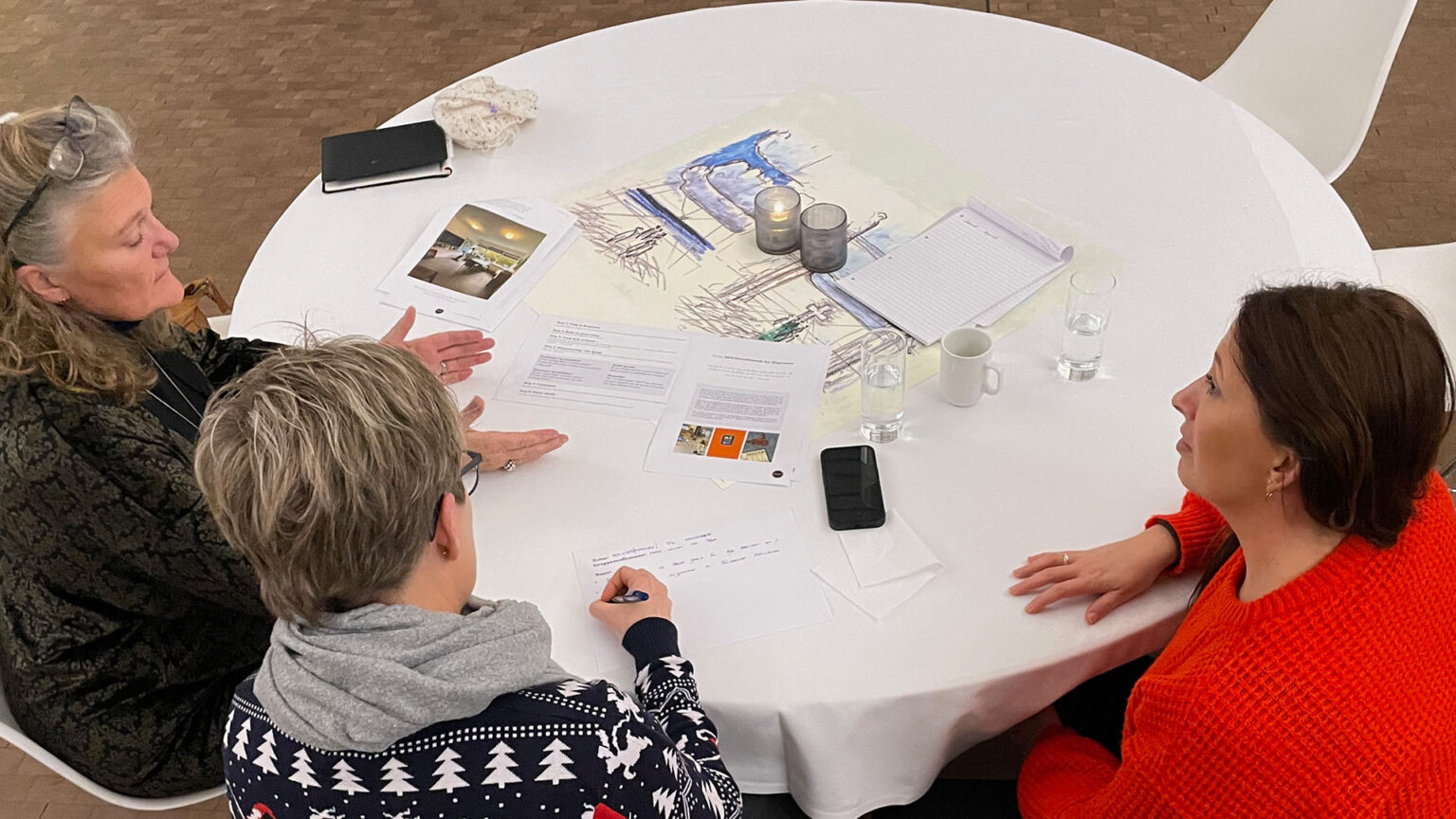
Enhancing hospitality in dementia care through arts and health innovation. Studio Poesis delivers insightful analyses and creative co-design workshops to strengthen the act-of-care and act-of-treatment of Dementia in Aalborg Municipality’s Day Centers.
Four Arts and Health themes that can enhance dementia care:
In this innovation project, Studio Poesis has developed inspiring and forward-thinking concepts to enhance “The Art of Good Hospitality in Dementia Care” within Aalborg Municipality’s Day Centers, benefiting both residents and staff.
To achieve this goal, Studio Poesis conducted an Atmospheric Gap (A-Gap) Analysis of two selected Day Care Centers: Harmonien and Skelhuset. These analyses were based on situated interviews with staff, patients, and relatives, combined with specialist observations. The findings resulted in an inspirational report and the development of at least 10 new concepts for improved dementia care. You can explore these concepts in the attached A-Gap analysis.
The concepts were further refined through co-design workshops involving key figures from the arts and health sectors, ultimately identifying five key concepts for new arts-in-health activities designed to strengthen relationships between residents and staff within the day centers.
Studio Poesis led the process, delivering both analytical insights and inspirational concepts. The material was developed through close collaboration with stakeholders, ensuring that the solutions could be implemented within the organization. The goal was not only to generate creative and innovative ideas but also to ensure they are practical, adaptable, and valuable for real-life dementia care settings.
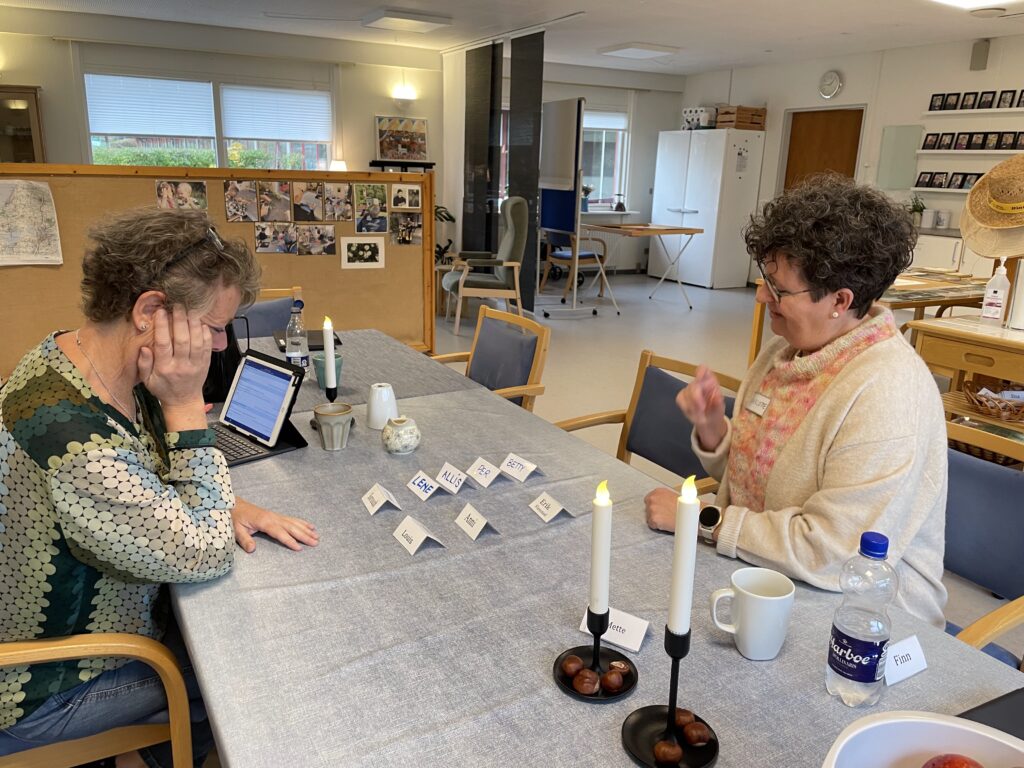
“The activities reflect us in one way or another. I think of singing because I find it fantastic. And ‘she’ thinks of doing creative things – and the joy spreads to the citizen.”
– Dementia care specialist .
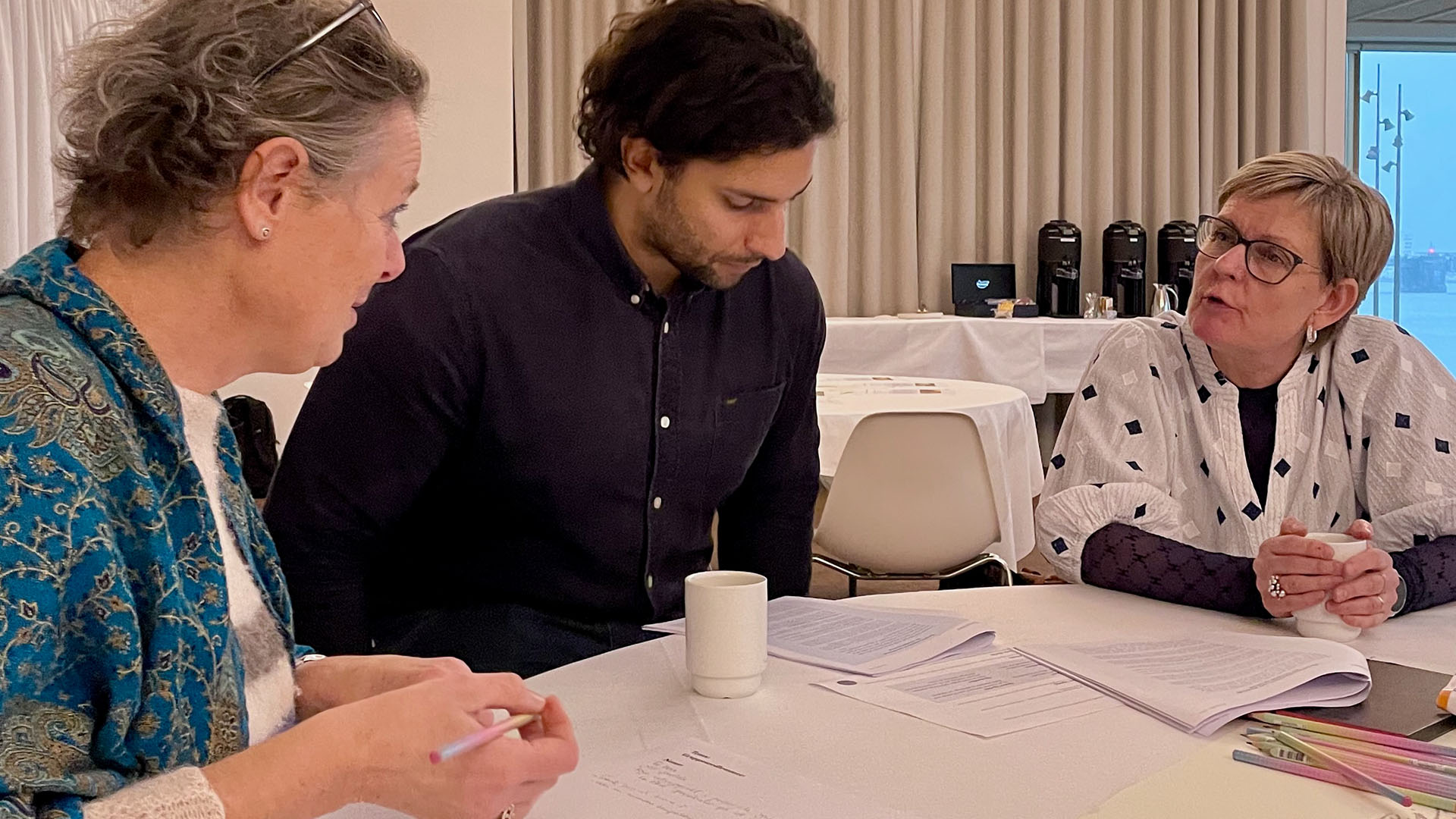
The purpose of the analysis is to identify needs and potentials for art and health in dementia day centers in North Jutland. The findings will be presented to staff in a design workshop where healthcare professionals and cultural professionals collaborate to identify key focus areas that can enhance hospitality in North Jutland’s day centers. The goal is to develop five themes that can be further refined and tested in 2025.
In this study, the following methods were applied:
See the recommendations here, (Language: Danish)

As an essential part of the innovation process, we strive to bridge the knowledge silos between arts and health. To support this, a design workshop was held, bringing together key local thinkers and makers in the field of Arts & Health. Their insights contribute to building a new knowledge platform that will serve as a foundation for future ideas and initiatives.
Consultant and Chief Physician, Aalborg University Hospital Per Thorgaard
Sound researcher and Composer Aarhus University Associate Professor Marie Højlund, PhD.
Head of Communications at Kunsten Museum of Modern Art Aalborg, Peter Juul
Architect and Designer, Studio Poesis Esben Bala Skouboe, PhD.
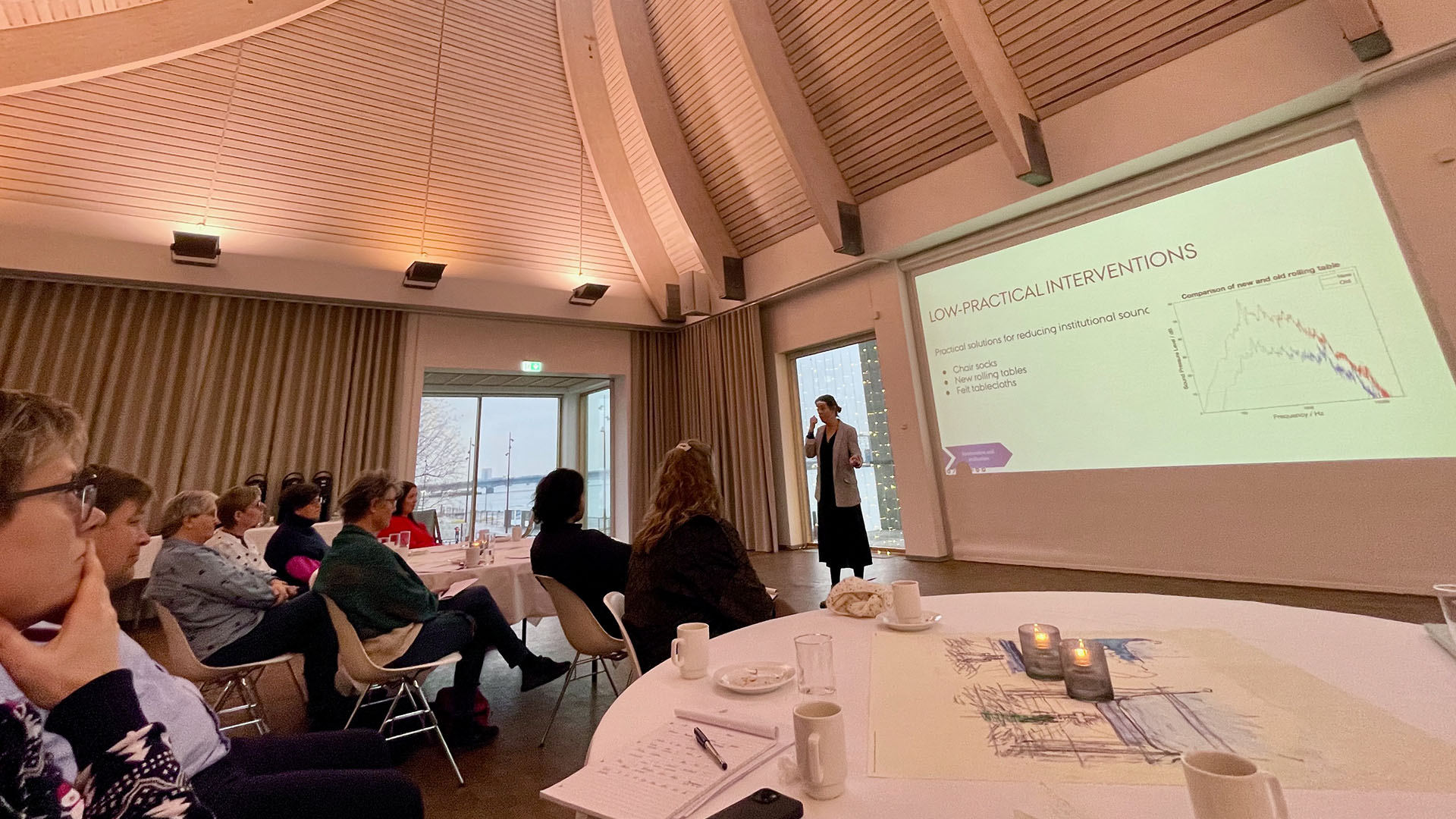
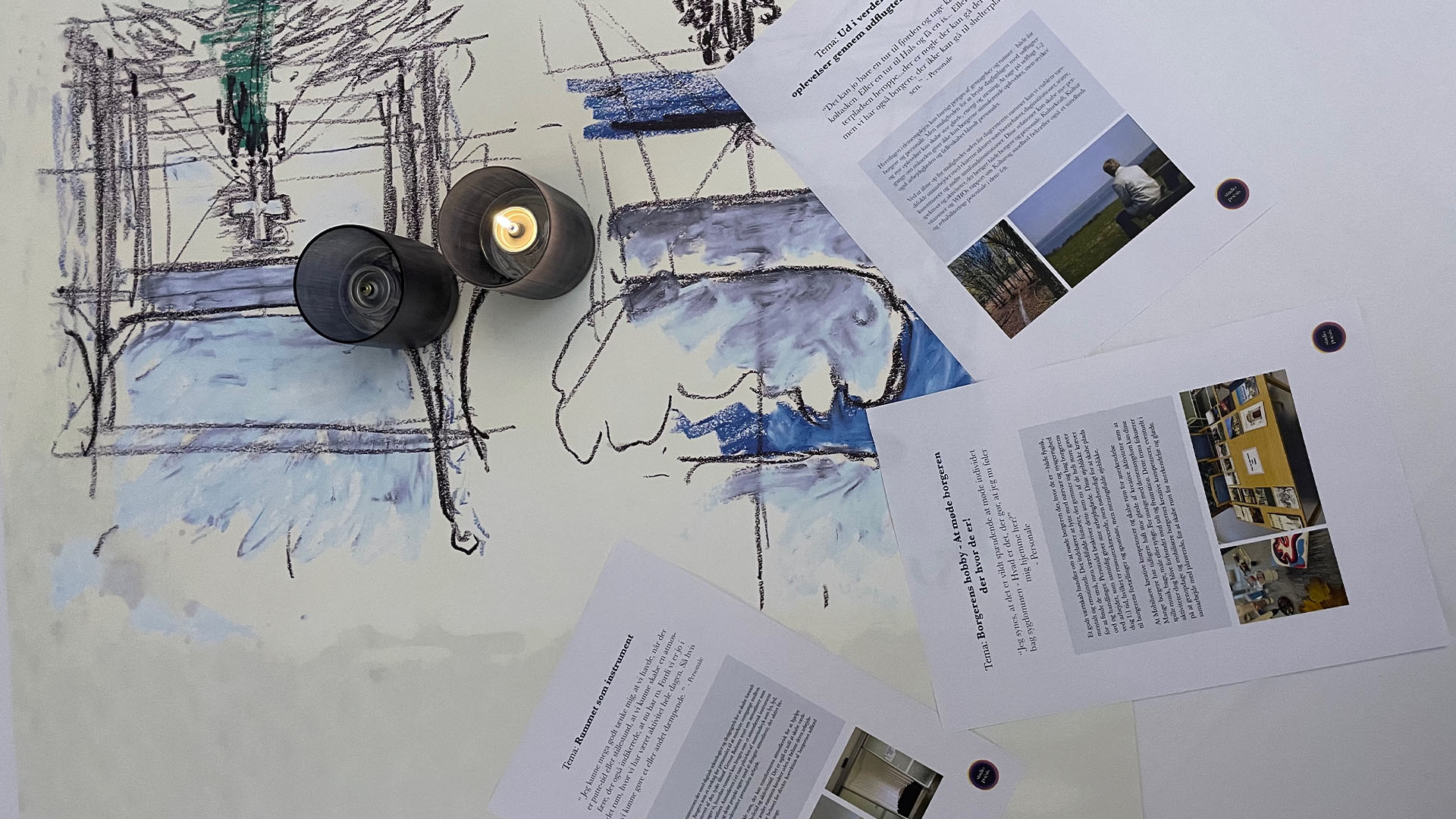
Exploring and implementing solutions that address “Home Blindness” in day centers while ensuring an environment that supports both community engagement and a sense of security for residents and staff. This involves a strategic approach to dementia-friendly design, focusing on flexibility, well-being, and aesthetics.
Identifying the creative interests and potential of staff and transforming them into activities that engage and inspire the residents.
This project aims to explore how the senses—such as smell, touch, sight, and sound—can evoke memories and foster meaningful connections for people with dementia. By strategically integrating sensory elements into residents’ life stories and daily activities, the initiative seeks to promote person-centered care tailored to individual needs and memories.
Exploring ways to create meaningful rituals for residents in day centers.
The four themes are accompanied by action plans that will serve as guiding tools for decision-makers in Aalborg Municipality Knowledge center for Dementia care.
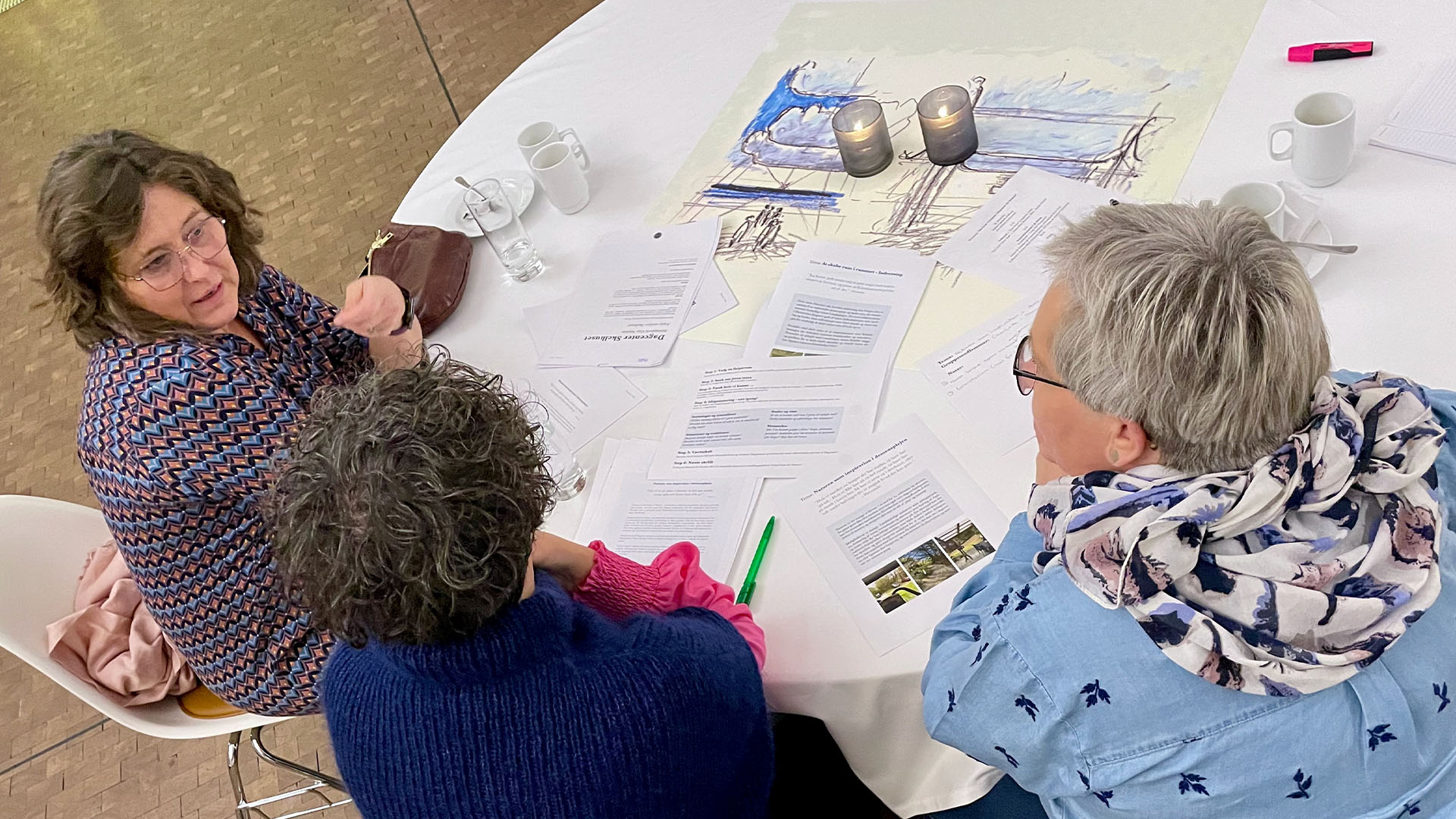


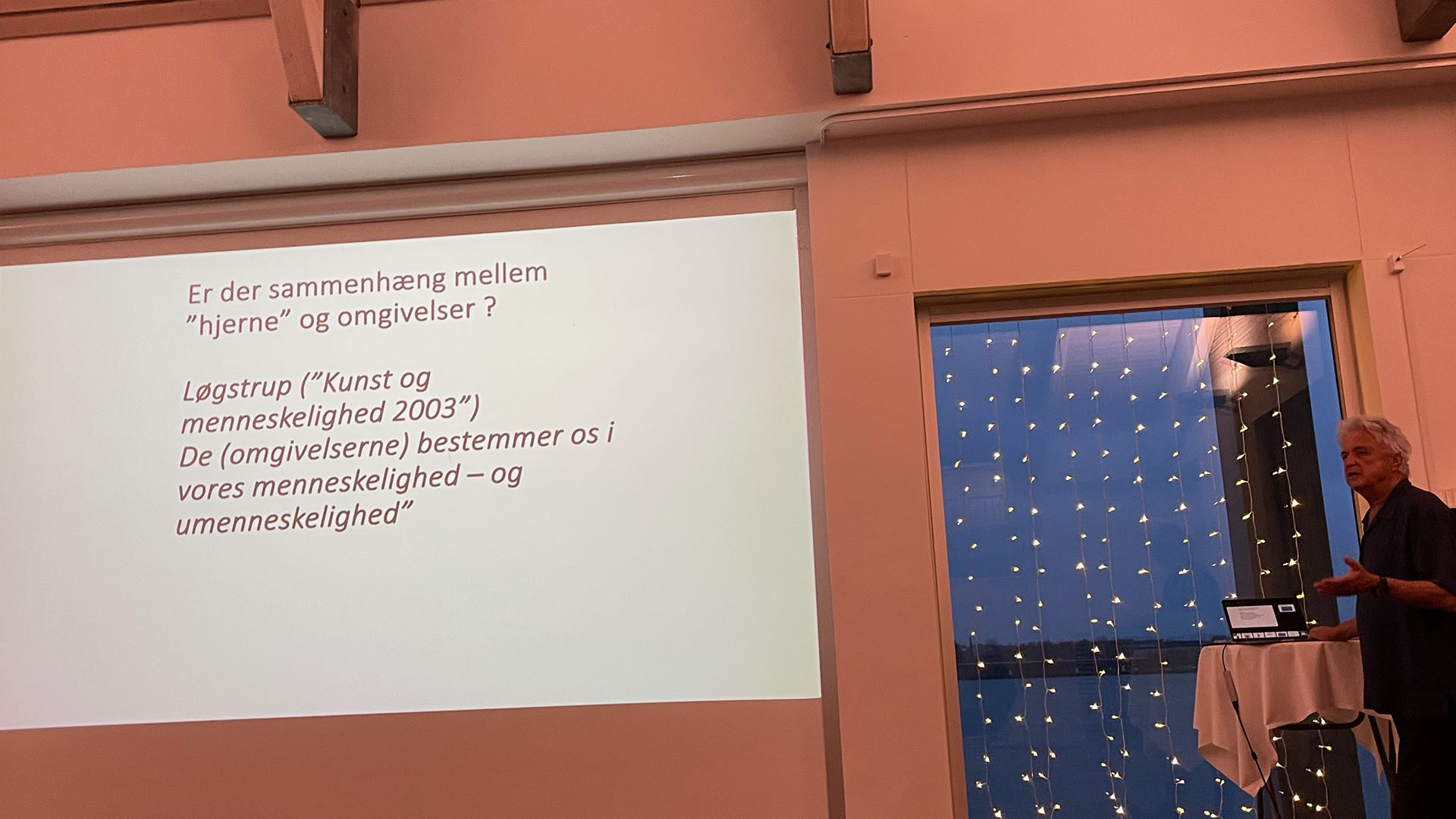
Is there a connection between the brain and its environment?
“The (environment) determine us in our humanity – and inhumanity.”
– Løgstrup 2003, Kunst og Menneskelighed
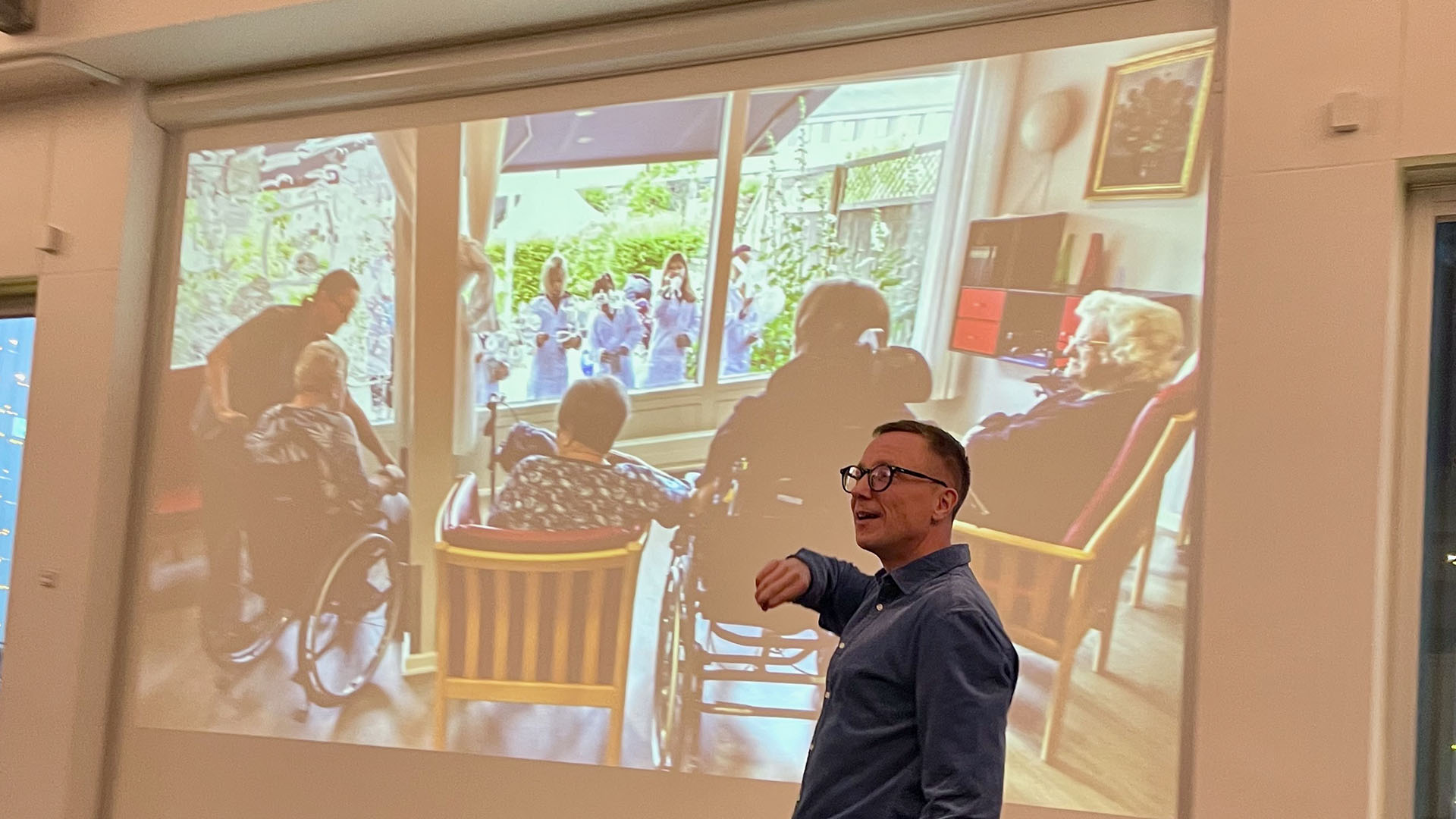
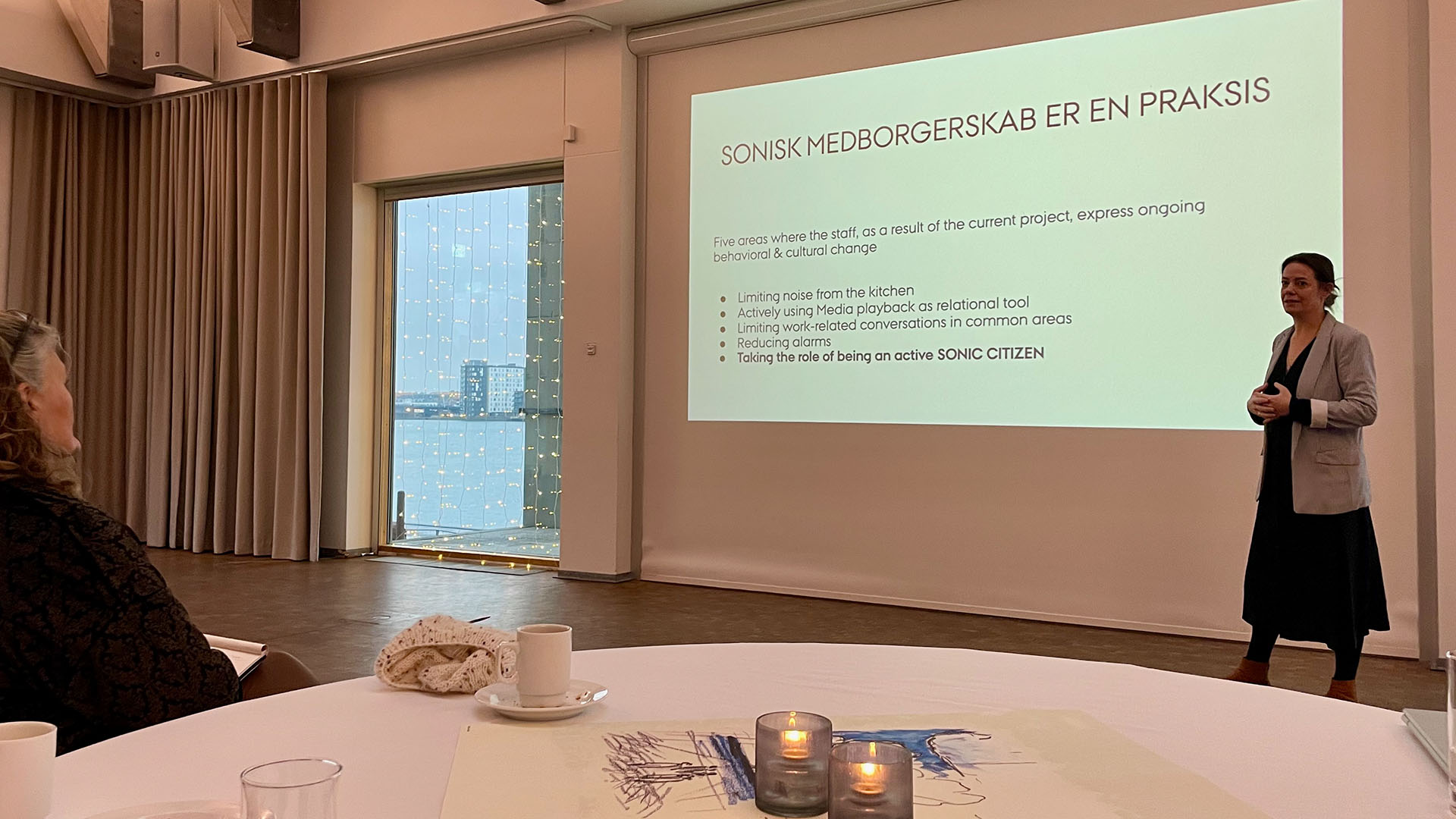
Studio Poesis

We use necessary cookies to make our site work. With your consent, we may also use non-necessary cookies to improve the user experience and analyze website traffic. By clicking “Accept”, you agree to our website’s use of cookies